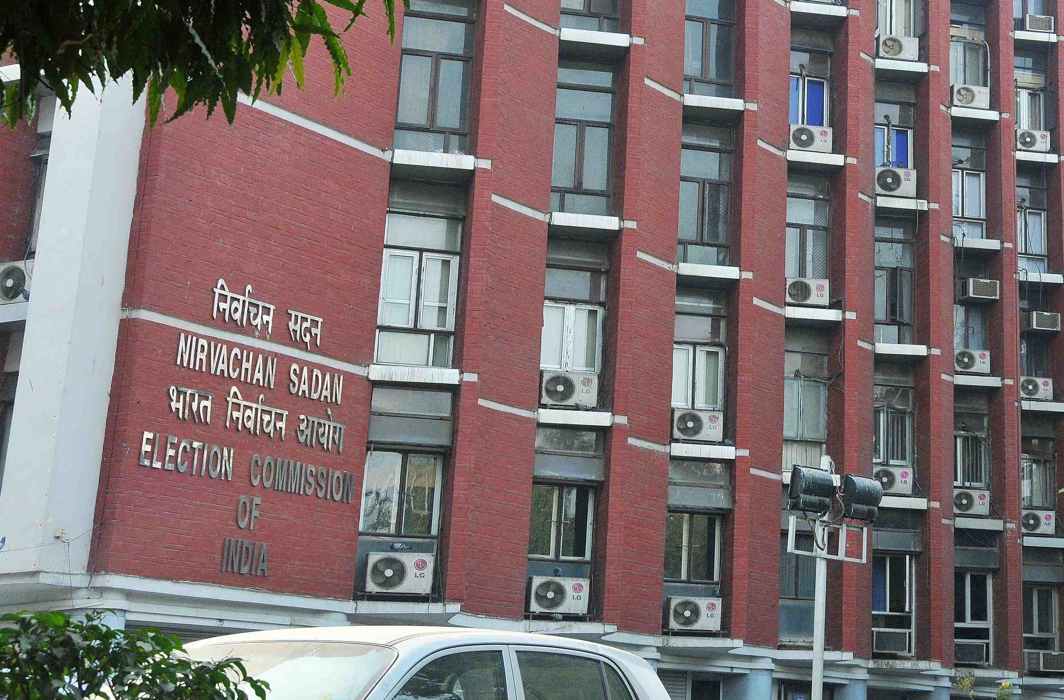[vc_row][vc_column][vc_column_text]Election Commission of India’s (EC) reasons for its decision to defer announcement of Gujarat election dates have come under a cloud following information obtained under a right to information (RTI) query.
While the doubts over dependability of electronic voting machines (EVMs) refuse to die down despite EC’s stout defence, this has given rise further questions about the EC’s handling of elections.
On October 12, the EC announced dates for elections to Himachal Pradesh Assembly but withheld dates for Gujarat Assembly polls. Both state assemblies’ terms expire within two weeks of each other and this seemed unusual. The EC explained that announcement of Gujarat election dates was withheld so that the model code of conduct does not affect flood relief work necessitated by unprecedented rains in Gujarat.
The model code of conduct is intended to provide a level playing field to all candidates and bars the government from announcing new schemes to woo voters once the election dates are announced. It remains in force till polling is over.
The Indian Express (IE) has reported that replies to RTI queries show that model code of conduct was in force in Jammu and Kashmir when relief work was on following massive flooding in the state in 2014. The code of conduct did not come in the way of relief work. The September 2014 Jammu and Kashmir floods, in which over 300 died and thousands affected, were considered one of the worst to hit the state in decades. The EC, then headed by VS Sampath, had decided against delaying the polls and held it in five phases between 25 November and 20 December. The state recorded 65 per cent voter turnout, the highest in 25 years.
In October this year, replying to questions from reporters about reasons for withholding announcement of Gujarat poll dates, Chief Election Commissioner AK Joti had cited some office memorandums issued earlier to justify the delay in the announcement. He had said the EC had a statutory 21 days to carry out elections that can extend up to 45 days. He had also said that besides availability of central forces and festive season, the Gujarat government had told the Commission that several relief and rehabilitation works were on in the state following the July floods.
According to Joti, the Gujarat chief secretary had written to EC asking for additional time as the relief and rehabilitation for July floods had begun only in September and were yet to be completed. “They have suggested that the Model Code of Conduct should be imposed for a reasonable time, so that they do not face problems in carrying out relief and rehabilitation work,” Joti had said.
While the EC found merit in Gujarat’s request, records showed that the model code of conduct did not affect relief and rehabilitation work for J&K floods. According to the IE report, EC records for Jammu and Kashmir 2014 election show that there was no official request from the state chief secretary to delay announcement of election dates. On November 5, 2014, the EC wrote to the cabinet secretary, state chief secretary and state chief electoral officer, informing them that it had relaxed model code provisions and they could continue with relief and rehabilitation “as per approved schemes of the central/ state governments” and no prior approval from EC was required for this.
The state government was also allowed to give out ex-gratia payment and gratuitous relief directly to victims and families without approval from EC in this case.
The IE reported that it had filed a separate RTI application seeking copies of letters written by the Gujarat Chief Secretary requesting delay in announcement of polls on account of relief work. The EC acknowledged the receipt of two letters, on September 27 and October 2, but did not provide their copies on the ground that the file was “under submission”. The EC also said that it had not issued any reply to the Gujarat Chief Secretary in response to the two letters.
The delay in announcement of Gujarat election dates, in the name of flood relief work, was used by BJP government in Gujarat for announcing a number of sops right up to a day before the election dates were finally announced on Nov 1.
The BJP government effected a 50 percent hike in the incentive paid to Accredited Social Health Activists (ASHA), village-level women workers who are a key component in the implementation of National Rural Health Mission (NRHM).
For farmers, the Vijay Rupani-government said it would waive off 18 percent Goods and Service Tax (GST) charged on the purchase of equipment meant for drip or sprinkler irrigation.
The government raised the ceiling on the annual income of OBC, SC and ST beneficiaries for availing benefits of state-funded schemes and scholarships.
On 22 October, Modi inaugurated a Rs 650 crore roll on-roll off (Ro-Ro) ferry service that reduces travel time by six hours between Saurashtra and South Gujarat.
418 cases against Patidars filed during the reservation protests were withdrawn by the police, reported News18.
The EC decision to delay Gujarat election dates came in for severe criticism.
Congress leader P Chidambaram had criticised the EC saying that by not announcing the Gujarat poll schedule, it has “authorised” Prime Minister Narendra Modi to declare the dates at his last rally, after all “freebies” for the state were doled out. The Congress had also alleged that the government put “pressure” on the poll panel to “delay” the announcement of Gujarat Assembly poll schedule to enable the prime minister to act as a “false Santa Claus” and offer sops.[/vc_column_text][/vc_column][/vc_row]


 India News21 hours ago
India News21 hours ago
 Latest world news20 hours ago
Latest world news20 hours ago
 Latest world news6 hours ago
Latest world news6 hours ago
 Latest world news6 hours ago
Latest world news6 hours ago
 Latest world news6 hours ago
Latest world news6 hours ago
 India News6 hours ago
India News6 hours ago
 India News6 hours ago
India News6 hours ago



